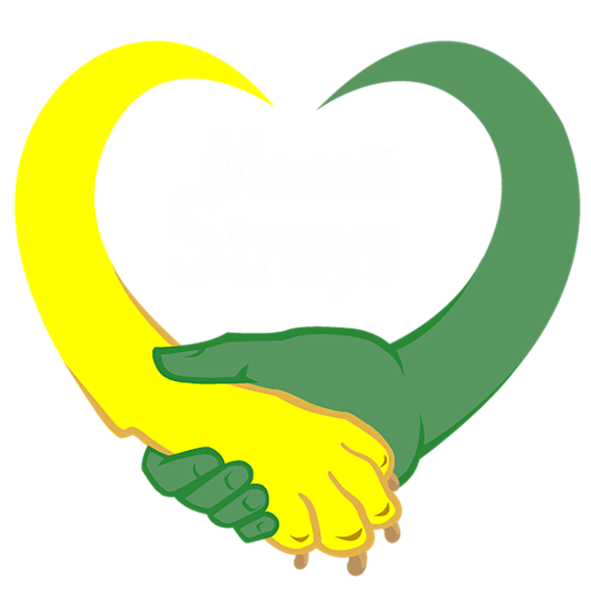The launch of Manali Strays
World Rabies Day—September 28th, 2019—marked the official launch of Manali Strays; an NGO founded to improve the welfare of Manali’s stray animals, and in turn create a more harmonious environment for humans and animals living together in the community.
To celebrate our official launch—and World Rabies Day—the Manali Strays team took to the streets vaccinating dogs. Starting at Manu temple, we worked our way through Old Manali and down into New Manali. A total of 80 dogs were vaccinated against rabies, 13 puppies were de-wormed and de-fleaed, 1 dog had a wounded ear treated, and another stray dog with a fractured leg was brought to our attention.
Interest in what we were doing was high, with many people asking us about our work, taking contact information, and telling us about what they do to help the dogs in Manali; it seems an animal welfare NGO in Manali is long overdue.,

One of the dogs we vaccinated—identifiable by the red mark on his head
Let's get sterilising
Everybody talks about the need to sterilise the street dogs. We are going to start an animal birth control (ABC) program this month starting on 13th November. We have temporary access to the Ram Baag building, kindly provided to us by the MC Manali.
In order to carry out these sterilisations we have had to buy 1 lakh rs ($1400, £1100) worth of equipment needed to perform the surgeries…. Catching nets (10,000 rs), surgical instruments (60,000 rs), an autoclave (15,000 rs), surgical drapes, anti-rabies vaccines, stethoscope, thermometers, instrument trays, etc. This is a one-time expense that will then allow us to continue sterilising dogs for many years, and in other villages around Manali, but it is an expensive purchase for a new NGO.
For every dog that we sterilise, the average cost is 2000 rs ($28) (£22) for medicines, vet costs, and overheads. with an estimated 700 dogs just in Manali town itself (Old and New Manali only, not counting the surrounding villages)—that’s 14 lakh needed to sterilize a small proportion of the dogs in the Manali area.

Sickness & injury around every corner

The darker side of unsterilised dogs—fight wounds that can become severe and even life-threatening.
Despite not having an ambulance or hospital yet, we do our best to treat the sick and injured strays that we see, or are told about. These animals have to be treated on the street as we have nowhere to rescue them to, making it difficult to perform follow-up treatment on those that need it. Luckily in a few instances the local community have pulled together and aided us by helping to catch the animal and restrain it while we treated it. Getting the community involved in the care of all the strays, whether sick or healthy, is one of our main goals, so this is a great start.
In for the long haul
In the long-term, our aim is to find some land and build a permanent hospital where animals can be treated and recover in safety and where surgeries can routinely take place. However, all this costs money, and with no government funding, we hope that all those members of the community who so desperately wanted an NGO in Manali will be able to support us.
Medical costs alone for sick and injured animals can reach 50,000 rs a month when fully operational. And then there are staff costs, electricity bills, food for the dogs, fuel for a vehicle to transport the dogs, etc.
So we hope, after all the interest in starting an animal welfare NGO, that interest can keep us going long-term and help us to help as many animals as possible. In turn this will create a safer town that people are proud of and where tourists will comment on how well looked after the animals are. But the support of the local community is essential if we are going to succeed.
Ways that you can support Manali Strays:
Follow us on Instagram: @manalistrays
Like & follow us on Facebook: @manalistraysrock
Donate items that we can use – bowls, blankets, toys, medicines, etc.
Donate money – see the yellow button below.

Making friends with the street dogs— time invested in these simple acts of kindness make catching dogs for treatment, vaccination, and sterilisation so much easier.
